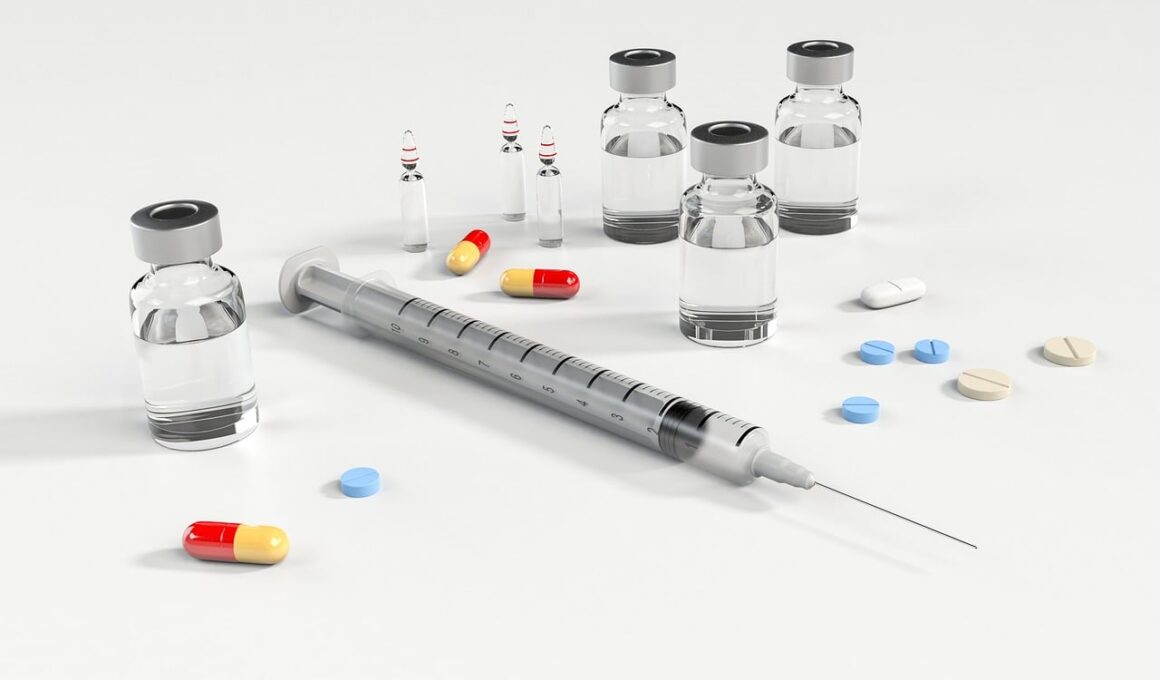Dangers of Human Medications for Cats: What to Avoid
As loving cat owners, we often find ourselves in a dilemma when it comes to our feline friends’ health, especially regarding medications. Some human medications can be easily accessible and seem harmless, yet they can be fatal to cats. First and foremost, it’s crucial to realize that our pets metabolize medications very differently than we do. While a dosage may be safe for humans, it could be toxic for your cat. Several common medications pose significant risks, including aspirin, acetaminophen, and ibuprofen. These medications can lead to severe consequences such as gastrointestinal bleeding, liver failure, or even death. Additionally, some human supplements can also be harmful. For example, vitamin D, often seen as beneficial, in high doses can cause kidney failure in cats. Consequently, it’s important to always consult your veterinarian before administering any human medication or supplement. They can provide alternatives that are safe and effective for your pet. Your cat relies on you for safety, so keeping them away from human medications should be a top priority to ensure their long-term health and happiness.
In addition to the risks posed by common human medications, the additives and inactive ingredients can also be dangerous for cats. Many pills and liquids meant for human consumption contain substances that affect felines adversely. Sorbitol, xylitol, and alcohol are common ingredients in some medications and can cause severe reactions. For instance, xylitol, a sugar substitute, is increasingly common in various products. Even a small amount can lead to hypoglycemia, seizures, and liver failure in cats. Therefore, always scrutinizing the ingredient list of any medication you consider for your pet is prudent. Furthermore, medications intended for human use often are available in forms that are easy for humans to take but could pose choking hazards or unintentional overdoses for cats. For example, chewable tablets or effervescent powders may seem harmless, yet they can be problematic. Always remember that the road to safety involves awareness and education. If your cat requires medication, it’s essential to only use those specifically prescribed by your veterinarian and follow their guidance on dosage and administration for your furry companion’s well-being.
Common Medications to Avoid
Some of the most concerning human medications include over-the-counter painkillers. Aspirin, for instance, is often used by humans to relieve pain or reduce fever, but it is notoriously dangerous for cats. Cats lack the necessary enzyme to metabolize aspirin effectively, leading to a severe buildup in their system. Symptoms of poisoning can include vomiting, diarrhea, and potential organ failure. Similarly, ibuprofen is another pain reliever that should never be given to cats. Just one dose can result in kidney failure. Acetaminophen is particularly hazardous; it is not only toxic to cats but also causes irreversible damage to red blood cells. Consequently, as a responsible cat owner, you should know that even low overdoses of these medications can quickly escalate into crises. Even natural remedies might not be harmless; certain herbal remedies could interact negatively with other medications your cat might be taking. Ultimately, when in doubt, seek guidance from a veterinarian before trying any unfamiliar compound or ingredient to ensure your feline stays healthy and safe from harmful medications.
Beside the common over-the-counter medications, prescription medications intended for human use can also pose risks. Antibiotics, while useful in treating bacterial infections in humans, may lead to dangerous consequences in cats. For example, taking human antibiotics can cause gastrointestinal disturbances in cats, leading to additional health issues. Additionally, some medications prescribed for humans, such as antidepressants and corticosteroids, can create complications in cats. If ingested, symptoms may include lethargy, tremors, loss of appetite, and excessive thirst or urination. Also, medications for treating chronic conditions like hypertension or diabetes should never be administered to cats without vet supervision. It’s also critical to store all medications securely and out of your cat’s reach, as even a missing pill could spell disaster. Keeping all drugs safely stored will decrease the chances of accidental ingestion. Always read labels thoroughly and never assume that a medication safe for you is safe for your cat. Your best bet is to consult your veterinarian for advice tailored to your cat’s health needs and specific situations, preserving their safety and well-being at all times.
Signs of Medication Poisoning
As a cat owner, you must be vigilant about recognizing the signs of medication poisoning. In cases of accidental ingestion, prompt identification can significantly improve outcomes. Early signs may include vomiting, diarrhea, or lethargy, which are common symptoms that require timely attention. However, more severe signs might take longer to appear, making it even more important to monitor your cat closely. These can include increased heart rate, changes in breathing, or uncoordinated movement. If you notice any unusual behavior, do not hesitate to contact a veterinarian immediately. They can provide guidance on how to proceed based on your cat’s symptoms and the type of medication ingested. It’s also crucial to have essential information ready, such as the name of the medication and the amount consumed. In severe cases, veterinarians may induce vomiting or provide activated charcoal to limit absorption. It’s important not to administer any home remedies without consulting a professional, as they could worsen the situation. Remember, awareness and action are key; these early steps can be lifesaving when dealing with potential medication toxicity in your cat.
A common misunderstanding is that all-natural substances are safe for feline consumption. This is not always true, as many natural remedies can also be toxic to cats. For instance, certain essential oils, while favored for aromatherapy, can cause skin irritations, respiratory problems, or worse if ingested by cats. The oils such as tea tree oil, lavender oil, and eucalyptus are well known to be harmful. Additionally, cats are particularly sensitive to garlic and onions—common ingredients in many kitchens. Both can lead to hemolytic anemia, which can be life-threatening. Therefore, educating yourself about these natural substances’ harmful effects is crucial in ensuring a safe environment for your cat. You might think herbal remedies are safe; however, some could interact poorly with medications your cat receives. Any changes in your cat’s routine could also lead to confusion or anxiety in your pet. Always discuss all topical applications or herbal treatments with your veterinarian before administering them, ensuring no immediate or developing risk factors could adversely affect your beloved pet’s health and safety.
Conclusion: Prioritizing Cat Safety
In conclusion, understanding the dangers posed by human medications and supplements is paramount for cat owners. Our furry companions depend on us to safeguard their well-being and make informed decisions regarding their health. Always consult a veterinarian before considering any treatments—whether, for illness, pain relief, or nutritional supplementation. Even benign substances like common vitamins can lead to unforeseen complications if given incorrectly. Regular veterinary check-ups also help recognize potential health issues before they escalate. Being proactive can prevent many problems related to medication mismanagement, thus supporting your cat’s optimal health. Additionally, creating a safe environment involves limiting access to medications and educating yourself about poisonous plants, foods, and substances. As an advocate for your cat’s health, you should cultivate a habit of vigilance. Remember that what works for you may not work for them, and a little caution goes a long way. Ultimately, the focus should always be on celebrating the joy of having a healthy and happy feline companion by making well-informed choices that prioritize their safety and well-being.
Consult Your Veterinarian
This also makes it vital to prioritize regular consultations with your veterinarian. They can provide the latest information about safe alternatives for preventing and treating health issues in your cat without resorting to potentially hazardous medications. Creating a safe environment, free from medications that can hurt your pet, is equally essential. Take the time to educate yourself on common household items that are toxic to cats, such as certain plants, foods, and substances. Awareness of these dangers ensures you can effectively protect your cat from harm. Cooking and eating around cats can sometimes lead to accidental ingestion of foods that are safe for humans but harmful to them. Always keep your medications and supplements out of reach, as cats are curious creatures by nature and often explore their surroundings. This responsibility creates a crucial line of defense against unwanted accidents. If you find yourself in doubt about what medication is safe for your feline friend, consult your veterinarian first. By taking these steps, you will create a safe, loving home for your cat. Prioritizing their health ultimately leads to longer, happier lives together.


